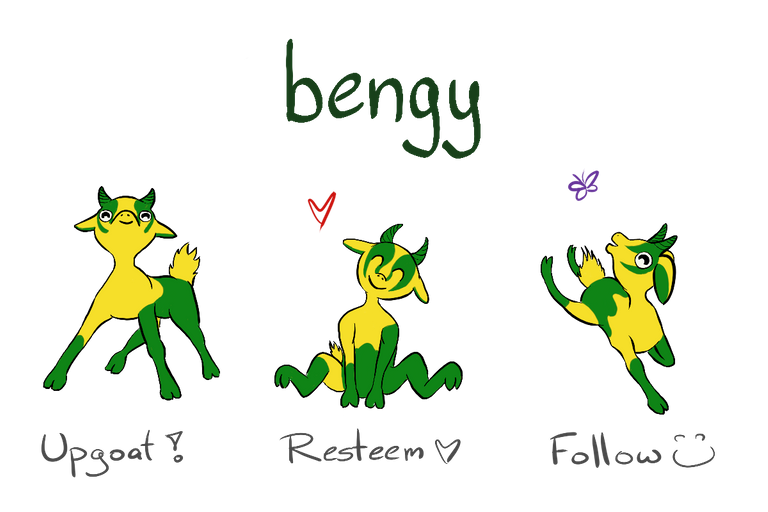STEM Breakthrough Contest: Improved Early STEM Teaching

This is an entry for the STEM contest being run by stemgeeks and @themarkymark. You can join the STEM contest fun here!
This last entry from me for the stemgeeks Breakthrough contest is more of a hope and a wish rather than a prediction for the future... however, in many ways I think that it is perhaps the most important topic out of all of my entries. However, this post does take the form of a polemic rant rather than a considered essay.... Apologies!

The Problem

The problem is pretty much summed up by the prevalence of people saying something similar to this:
"I've never been good at Maths (or Science), I just didn't get it and it's okay..."
"It's just too hard... and I just gave up..."
Well.... therein lies the problem in a nutshell. For some reason, the public at large finds itself comfortable with the fact that numeracy and the ability logically reason, analyse and problem solve, the application of hypothesis to experiment to test against reality are NOT useful and critical life skills. Thus, their ability to digest and sort information (especially in an unsorted and unverified information rich environment like our current internet) is severely limited... so, there is no real surprise that some quite "interesting" ideas gain traction without any question (or fact checking.. or analysis... or tests against reality...).
In fact, it is really quite surprising that some people will take a perverse pride in being terrible at something that is so critical to a modern society. No one would be proud that they were illterate... or that they never learned to graduate from their nappies (diapers for our American friends...).
"It's genetic..."
In my teaching... I see a few parents say this as an excuse for their kid's difficulty with the STEM topics. No No No... it isn't genetic... if that were the case, then none of us would deviate very far from our parent's professions... obviously that isn't the case in reality, so let us discard that hypothesis (yay for STEM thinking...).
What is more true, is that if a parent shows lack of interest, fear or disdain for a particular topic... then surprise surprise, the children will adopt that behavior and lay the groundwork for their future failure.

Current teaching

Okay.. this is going to be a bit of generalisation based on my experience with tutoring and teaching privately many children over the last few decades. So, a completely anecdotal, non-scientific hunch... but my point of view at the moment. Also, it is a generalisation, so I realise that not everything here applies to all teachers and schools.
"STEM is hard"
As a performing musician who is exposing himself to continual tests of ability in real time with the risk of public humiliation (these trials are otherwise known as concerts...)... I know that the easiest and best path to failure is by telling yourself that something is hard or difficult. If that is your starting point, then you will face a steep uphill climb to convince yourself that the opposite is true... when you master and understand a concept or a skill, it is actually quite easy... however, if you have decided that it can only be ever be difficult, then you will never master it.... because, even when you do master it... you are more likely to deny it as it doesn't have that feeling of struggle...
To be honest, I always found Maths and Physics to be simple and elegant... tell you what is hard? History, Literature and any Social Science! Everything is dependent on different conditions with no guarantee of a similar or linked outcome... random noise obscures signals so that the person with the best (but untested) story becomes the accepted interpretation of events?
So... why do we tell our young kids and students that STEM is hard? Why do we kneecap them at the start and then wonder why there is a problem? This begins at home, and is often amplified through primary school... we keep reiterating that Maths and Science is HARD... and that getting the RIGHT answers is the most important pursuit of STEM.
No, the most important pursuit of STEM is the idea of discovery... following curiosity and learning how stuff works.... this can be in an abstract sense (Maths and Theoretical Physics) or more concrete (Engineering... ). Every kid does this already from birth... this is how they discover the world! So, why do we discourage it under the guise of learning STEM?... well, the problem is not STEM subjects... it is in the way that it presented by both teachers, educators and parents.
Computers will do it all for me now!
I can't say this directly to parents (but I do to students...)... Shit in, Shit out.

Flawed Solutions

What I have seen from the examinations boards and education syllabuses (again, anecdotal) is to try and "fix" the STEM teaching problem with metric based solutions. We have faced an exodus of students over the last few decades at the secondary school level away from the STEM subjects.
So, the idea that gains traction is that STEM is just too hard and not applicable to everyday live... which means that we need to get more students getting passing grades and make it applicable to "real" life. Equations and theories are for eggheads... we need more social applications and links.
So, I've seen the curriculum change to easier theory less emphasis on understanding first principles... Instead, you need to regurgitate methods with no understanding... do something and the black-box method works and gives you 100% and full marks. Students and parents even get cranky at me if I try to teach them how and why first principles and the understanding of the theory will mean that you don't need to memorise arcane formulae!
... as for making STEM more "relevant"... we have questions about how different types of energy production will affect the environment, without any need to understand how the different energy production methods actually physically work! Well, it IS important to understand how energy production modes affect the environment... don't get me wrong, I think it is critically important... however, it is NOT PHYSICS! This could belong in some other interesting topic like the social effects of science or something like that... but NOT PHYSICS!
So, all of these solutions are based on attracting more students and getting passing grades... by changing what actually constitutes STEM! Would it make Literature better if we reduced the available vocabulary to only words with maximum 5 letters?

A Possible Future?

So.... I'm hoping and wishing for a future where saying "I'm terrible at STEM" is seen with the same derision that "I can't read" currenty is. After all, there was a time when not being able to read was quite okay... now, it is considered to be a major handicap in a modern society.
Targeting the early education pipeline (pre-school... primary and secondary schools) is critical... early childhood educators have in general not really had a good personal experience with STEM subjects... and so are we surprised when that hesitation is passed on? Also, the depth of understanding is just different... leading to an emphasis on correct answers rather than first principle understanding and discovery.
So, early childhood teachers need to be paid more... to attract the cream of STEM literate graduations... after all, early education (and primary and secondary) is THE most influential profession bar none. You literally lay the groundwork for the future minds of society!
We need to re-focus the emphasis of STEM teaching into understanding, critical thinking and discovery. STEM subjects should NOT be optional for the end of school... students shouldn't be allowed to graduate secondary school with a deficiency in understanding these critical areas of problem solving and rational analysis. We should embrace the idea that lack of ability in these areas (like reading used to be...) is a serious handicap in a modern society... and not blow it off as some mark of perverse pride.
STEM isn't hard... it is a challenge to your thinking and understanding skills... however, by mastering the skills required to navigate STEM topics, you do actually gain critical life skills.... even if you don't end up working in a STEM field. Critical and Rational Analysis gives you the tools to understand the claims and information that people throw at you in real life... which will lead you to making better choices in life.


Account banner by jimramones


Haha Bengy, I love the look on that frog’s face. He definitely does not think he can learn how to do anything but croak.
Seriously, you are so right that the parents have a huge impact on a child’s attitude. I read that intelligence is not always genetic and a genius might pop up unexpectedly or heavens forbid, vice versa. 😊
Yes... like most things, it is a combination of nature and nurture... nothing is completely out of your control... but nothing is truly within your control either! However, it is too easy to take the simple and no-responsibility route!
Oops, almost forgot, here is !SHADE 5 in addition to my 100% up-vote for your excellent, quality Blog Post!
Enjoy!
@bengy you have received
5 SHADEfrom sgt-dan!View and trade the tokens on Steem Engine.
This tip bot is powered by witness untersatz!
Big thanks for your support!
STEM may be hard, but its rewarding. Just like most hard work.
Heard this on #pypt
STEM is definitely a challenge to critical, logical and analytical skills... personally, I wouldn't call it hard... I find social studies to be much much harder!
PS: Thanks for the curation!
First, I would like to commend you for choosing teaching as a profession. I believe it to be the most honorable and important vocation to which a person can aspire.
You make a many good points and your insight, as an experienced teacher, into the silly notion that the ability to learn a subject is genetic is refreshing!
At the age of 58, I do my best to be a life-long learner. I am no longer a teenager who has the answer to everything. For the forgoing reason, I wish to thank you for sharing this post. I have been given a great deal to mull-over.
I plan to share this post in the Pimp Your Post Thursday Show (PYPT) this morning hosted by @shadowspub.
This is what I call... and while I have not looked at the other entries for @themarkymark's contest, I believe this article to be the frontrunner!
and while I have not looked at the other entries for @themarkymark's contest, I believe this article to be the frontrunner!
Life long learning is always a great thing to have! It is the idea that we are eternally interested and curious enough to want to discover more and more... and it keeps boredom and apathy at bay quite nicely as well!
I'm not directly a teacher as such, I do teaching privately... so, it is sort of teaching, but the teachers who work in a classroom have their work to be much much much harder than anything I have to do! I think teaching 30 teenagers who have at best varying levels of interest in what you are saying... whilst being hamstrung by a oddly designed curriculum... well, they are real heroes!
Thanks you for sharing my post!
@bengy - your "rant" makes a lot of sense to me. And you have the background and experience for the conclusions you've made.
Happy that it makes some sense... I was starting to think it was getting a bit too unfocused!
Hello!
This post has been manually curated, resteemed
and gifted with some virtually delicious cake
from the @helpiecake curation team!
Much love to you from all of us at @helpie!
Keep up the great work!
Manually curated by @solominer.
@helpie is a Community Witness.
Thanks for the support!
Your post has been curated by the bitcoin myk project. Tokens are available for this account you can trade for steem at: https://steem-engine.com/. Join our curation priority list to earn more tokens by registering here
Visit our discord at: https://discord.gg/n7aCkcr
Thanks for the support and curation!
!SHADE 5
@bengy you have received
5 SHADEfrom snook!View and trade the tokens on Steem Engine.
This tip bot is powered by witness untersatz!
Thanks for the support!
Hello,
Your post has been manually curated by a @stem.curate curator.
We are dedicated to supporting great content, like yours on the STEMGeeks tribe.
Please join us on discord.
Thanks again!